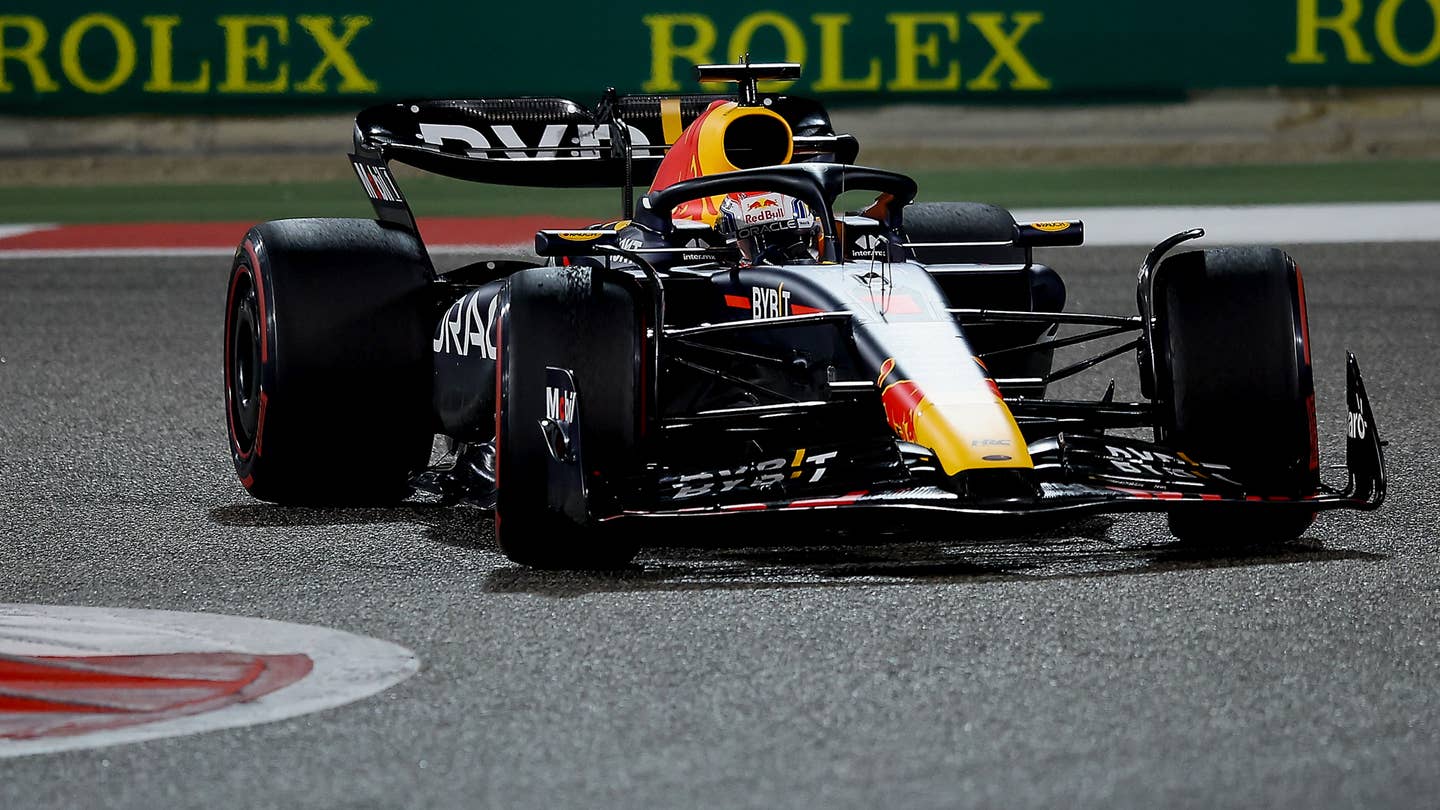Here’s How F1 Engines Make 1,000 HP From Just 1.6 Liters
Even without the hybrid assistance, F1 V6s are still able to squeeze out almost 850 horsepower.

Formula 1 engine designers are wizards. They're able to take F1's incredibly complicated, highly restrictive rulebook and use it to create engines that are smaller than the Toyota Corolla's but make 1,000 horsepower. How are they able to do that? Let Jason Fenske from Engineering Explained … explain.
First let's start with some of the rules themselves. Current F1 engines all need to meet a certain set of requirements. They all need to be 1.6-liter 90 degree V6s, with an 80mm bore and 53mm stroke. They all have to be mild hybrids, too. Which is why all F1 engines have two electric motors: one called the MGU-K, which is powered by a battery and adds power to the crankshaft, while the other is called the MGU-H and it manages the turbocharger.
That MGU-K adds about 160 horsepower to the engine, which is one of the ways such a small V6 can make such big power. But even with the MGU-K, the piston engine is still responsible for around 840 horsepower on its own.
Another rule that has to be worked around is fuel capacity. You can't just give the engine more fuel and more air to make more power, as F1 cars are only allowed to carry 110 kg of fuel on board for the entire race. Which means F1 engines need to be extremely efficient, so they can squeeze as much power as absolutely possible out of each drop of fuel. One of the ways they do that is called pre-chamber ignition, which is a fancy way of saying there's a smaller secondary chamber inside each cylinder that ignites first.
There's so much more to it than that and, as per usual, Fenske explains how all of this works while doing enough math to melt my tiny brain. It's all extremely complicated engineering that makes F1 engine designers seem like absolute wizards. Not because F1 engine tech is more advanced than any other engine tech but because of the incredibly strict rules those engineers have to work around. They're able to make huge amounts of power by squeezing every last bit of energy from every drop of fuel, all while dancing around a complex rulebook. Maybe now you'll give Ferrari a break when its engines fail.

Got tips? Send 'em to tips@thedrive.com
